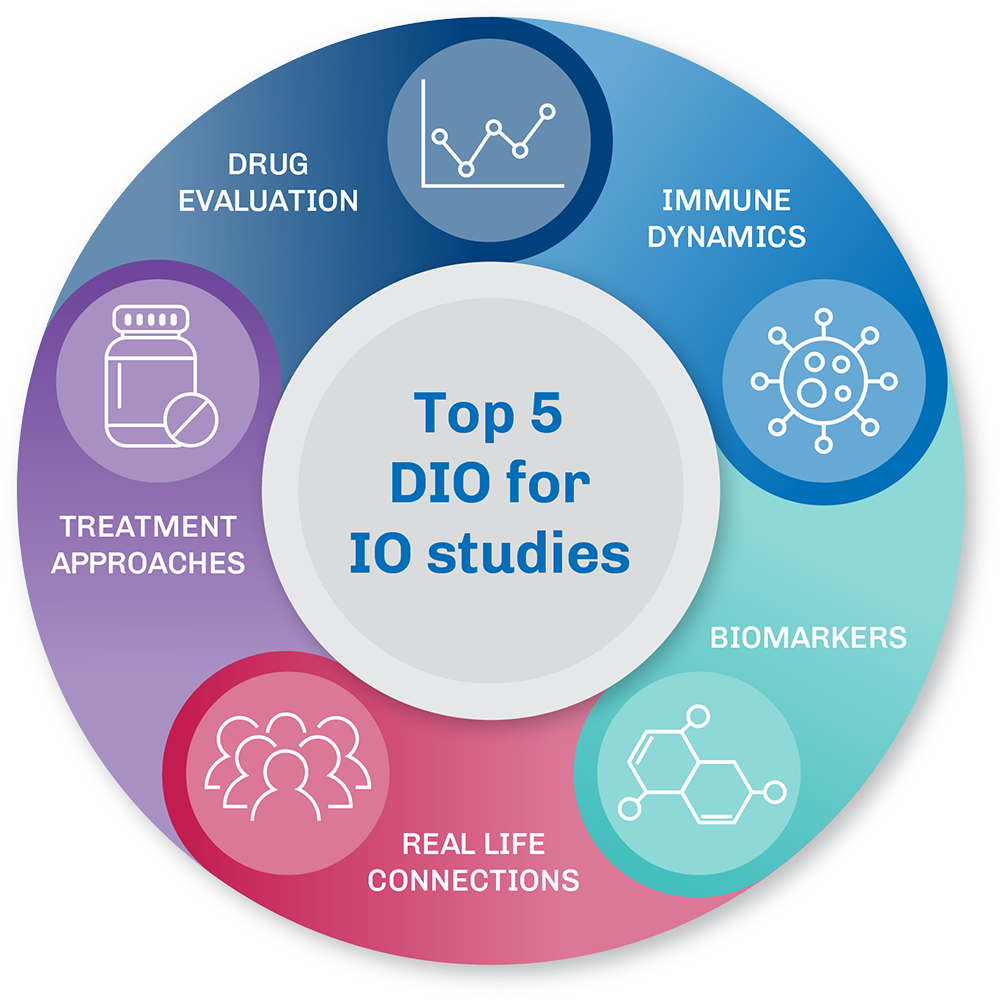In the sphere of immuno-oncology research, a powerful tool has emerged - the Diet-Induced Obesity (DIO) mouse model. These models provide researchers a practical route to understanding the connections between obesity, immunity, and cancer treatment. The real value of DIO mice lies in their ability to reflect human-like responses, marking a new phase of discovery. Below are the top 5 reasons researchers should be incorporating DIO mice into the preclinical evaluation of immuno-oncology treatments.
Unveiling the Potential: 5 Ways DIO Mice Enhance Immuno-Oncology Discoveries
August 22, 2023

- Receptor Mediated Therapies in the Clinic: From Targeting to Impact
- A Translational Lens on Synergistic Cancer Therapy: Insights from Our Recent Case Study
- Redesigning Preclinical Oncology: A Framework for Improving Clinical Translatability with AI, RECIST-Inspired Metrics, and Systems-Level Thinking
- Radiopharmaceutical Dosing Under FDA’s New Spotlight: What You Should Know
- Expanding Access to CART Therapies: TD2 Oncology Featured in SCRS inFocus
Receptor Mediated Therapies in the Clinic: From Targeting to Impact
Your browser does not support the video tag. Receptor mediated therapies have fundamentally changed how cancer is treated in the clinic. What began ...
A Translational Lens on Synergistic Cancer Therapy: Insights from Our Recent Case Study
In cancer drug development, monotherapies often lose ground when tumors adapt. This is especially true for KRASmutant non–small cell lung cancers ...
Redesigning Preclinical Oncology: A Framework for Improving Clinical Translatability with AI, RECIST-Inspired Metrics, and Systems-Level Thinking
Despite decades of investment in oncology drug development, the translational pipeline from preclinical models to clinical success remains ...
Get Started
Contact Us Today!
If you’re looking for an expert team to guide your trial with efficiency in mind, we can help. As the creators of the Dynamic Trial, TD2 provides start-to-finish support with trial strategy, design and execution for faster go-to-market potential.


